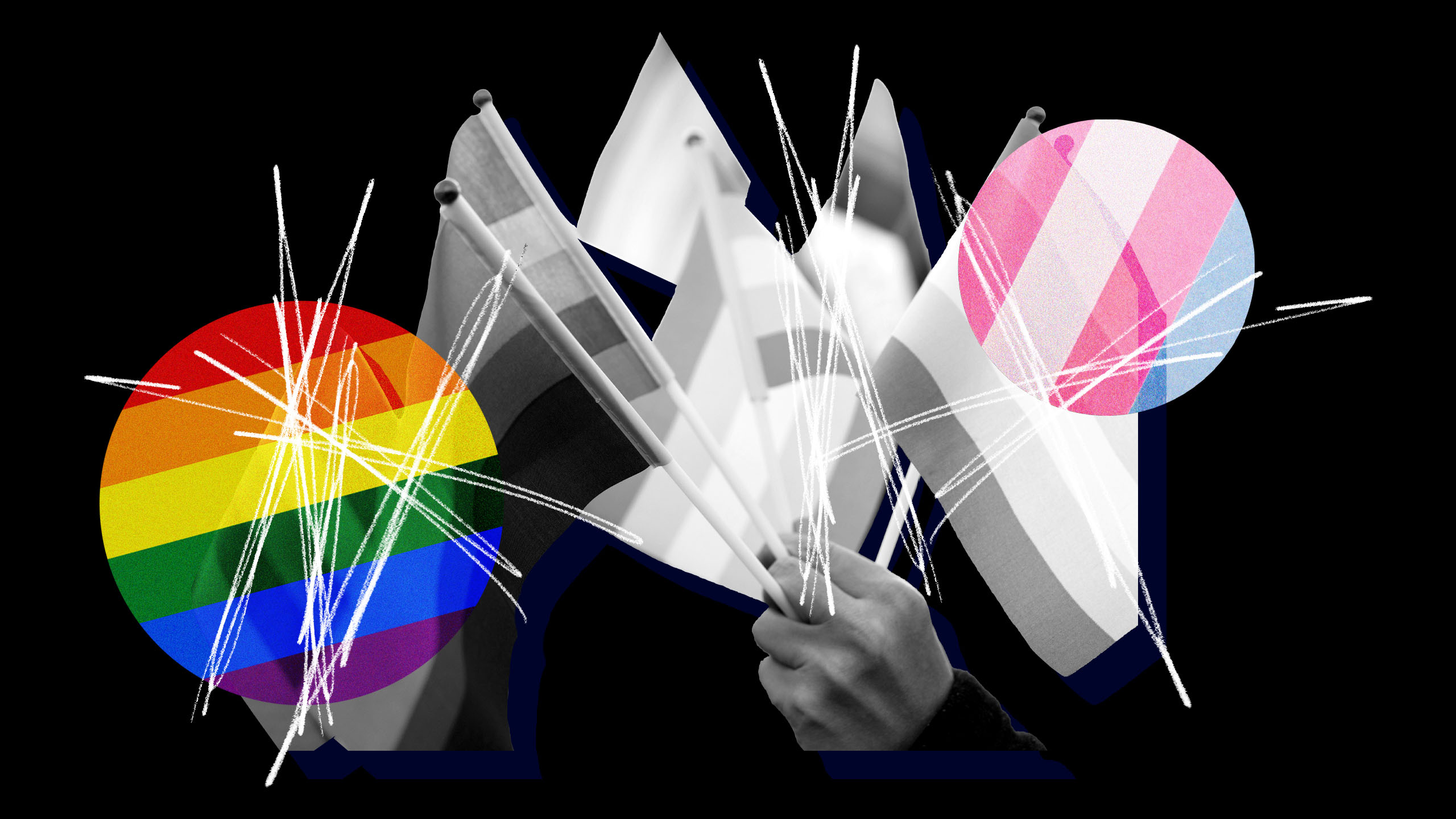Pro-LGBTQ+ symbols may be banned from this year’s FIFA World Cup in Qatar due to the country’s ongoing criminalization of queer and trans people, according to reports.
Major General Abdulaziz Abdullah Al-Ansari, a senior official overseeing security for the World Cup, recently announced that rainbow flags could be confiscated at this year’s games in November, which are being hosted by the conservative Middle Eastern country. He told the Associated Press (AP) that LGBTQ+ fans and same-sex couples would still be “welcomed and accepted” at the event, despite same-sex relations being criminalized in Qatar.
“If [a fan] raised the rainbow flag and I took it from him, it’s not because I really want to take it to insult him, but to protect him,” he said. “Because if it’s not me, somebody else around him might attack. I cannot guarantee the behavior of the whole people. Here we cannot change the laws. You cannot change the religion for 28 days of [the] World Cup.”
Al-Ansari, who is also the director of Qatar’s Department of International Cooperation and chairman of the National Counter-terrorism Committee for its Interior Ministry, added that he is personally against the overt promotion of the rainbow Pride flag.
“You want to demonstrate your view about the [LGBTQ+] situation,” he said, “demonstrate it in a society where it will be accepted.”
The 2022 World Cup will be the first in the tournament’s 92-year history to be hosted in the Middle East, and the choice of host site has sparked massive criticism from LGBTQ+ activists. Qatar is one of almost 70 countries around the world that outlaws same-sex behaviour, according to the global LGBTQ+ organization Human Dignity Trust. Article 296 of its criminal code, which was enacted in 2004, prescribes a punishment of up to three years in prison for sodomy convictions.
Same-sex marriage is also illegal in Qatar, and the death penalty could theoretically be applied for acts of queer intimacy. Capital punishment for homosexuality, however, is rarely enforced.
Several LGBTQ+ athletes have also condemned the decision to hold the tournament in a country with strict penalties for homosexuality. Olympic diver Tom Daley called to boycott the 2022 World Cup, and openly gay Australian soccer player Josh Cavallo admitted that he would be “scared” to play in Qatar.
“One of the greatest achievements as a professional footballer is to play for your country,” Cavallo told U.K. newspaper The Guardian last November, “and to know that this is in a country that doesn’t support gay people and puts us at risk of our own life, that does scare me and makes me re-evaluate: Is my life more important than doing something really good in my career?”
Al-Ansari’s announcement seems to contradict assurances made to LGBTQ+ athletes and advocates that queer and trans equality would be respected at the World Cup. In 2020, FIFA’s chief of social responsibility and education officer, Joyce Cook, said that “rainbow flags” and “T-shirts will all be welcome in the stadium.”
“That’s a given,” she told the AP. “They understand very well that is our stance.”
Nasser Al-Khater, CEO of the 2022 World Cup, appeared to confirm that officials in Qatar would heed that edict. At the time, he told the AP that the country “will respect” FIFA’s decision to allow displays of support for the LGBTQ+ community.
But even the tepid promises made by Qatar officials not to persecute LGBTQ+ soccer fans have provided little comfort to queer and trans people who call the country home.
Even before Al-Ansari’s recent comments, LGBTQ+ Qataris expressed disappointment that their country would accommodate Westerners while its own citizens continue to face persecution and called for sweeping reforms to Qatar’s criminal codes.
“Short-term and conditional tolerance solely to fulfill the usual of FIFA throughout the World Cup is hypocritical and disgusting,” an unnamed source told U.K. newspaper The Independent last August. “We’re human, too, and this safety ought to keep after the World Cup.”
This isn’t the first time that FIFA has faced controversy over its choice of host site for the World Cup. Russia hosted the games in 2018, five years after national lawmakers passed a sweeping “propaganda” law cracking down on virtually all aspects of LGBTQ+ life. While the law banned the dissemination of information on “non-traditional sexual relationships” to minors, its enactment led to police banning Pride parades across Russia and imposing fines for expressing support for the LGBTQ+ community on social media.
Although LGBTQ+ flags were allowed at the 2018 World Cup, advocates warned that queer and trans fans could face violence after the propaganda law’s passage led to a two-fold increase in anti-LGBTQ+ hate crimes. A gay couple attending the event in support of the French national team was reportedly beaten and robbed.


 Why you can trust Xtra
Why you can trust Xtra


